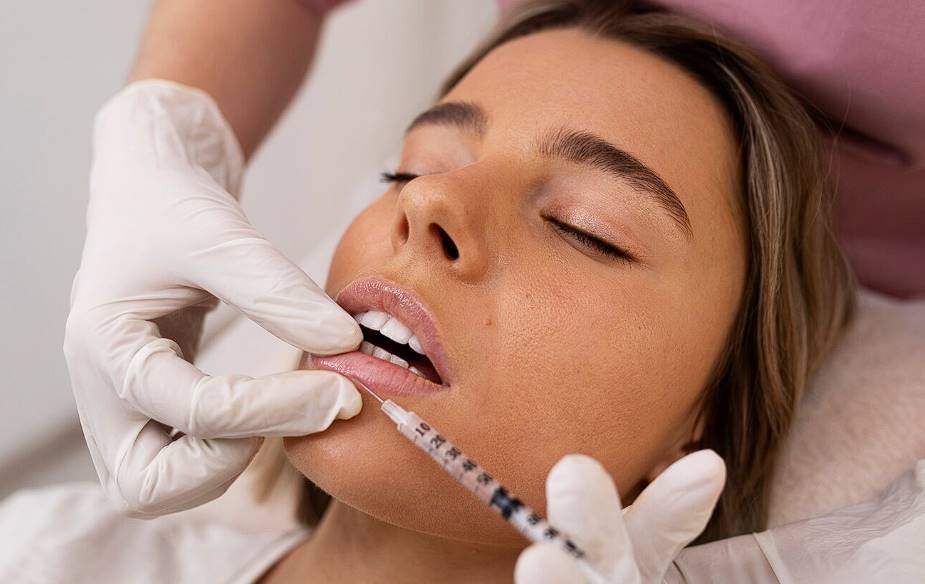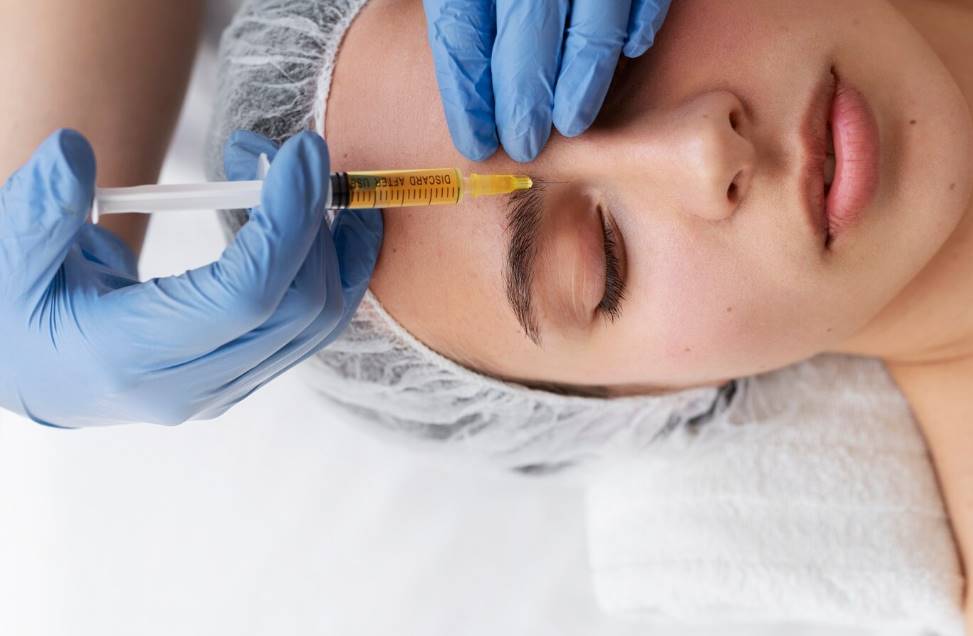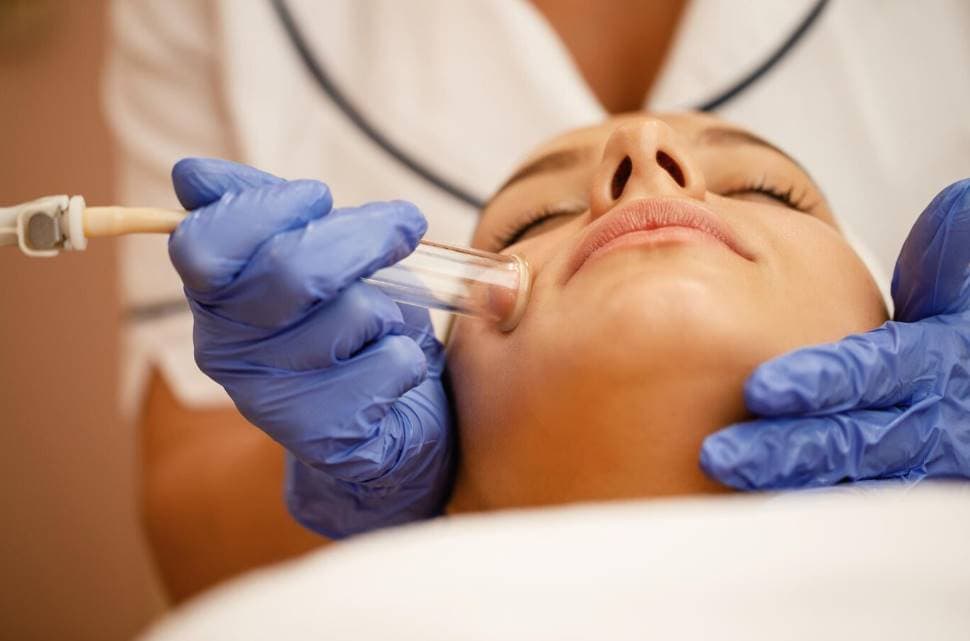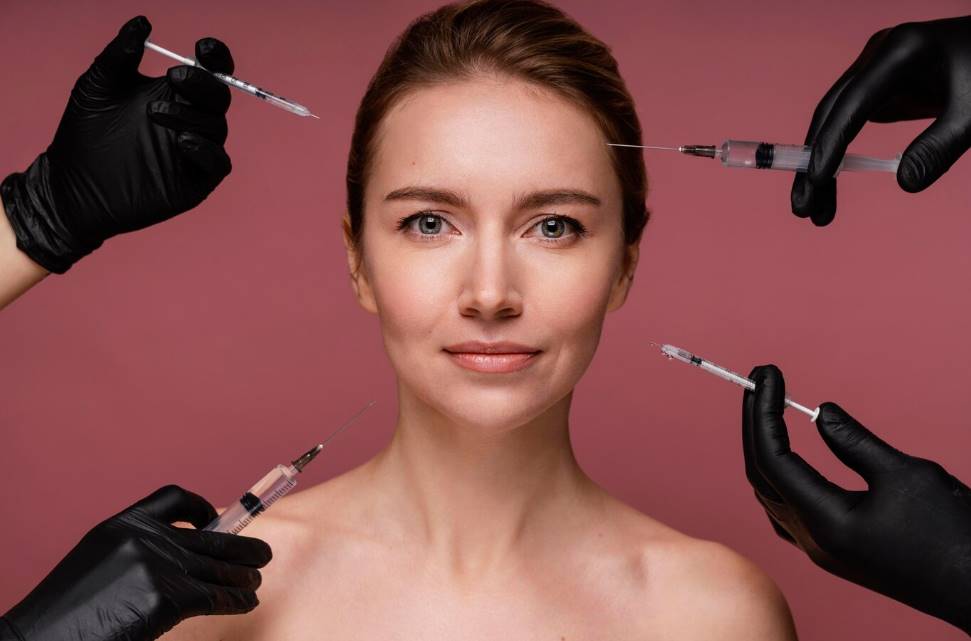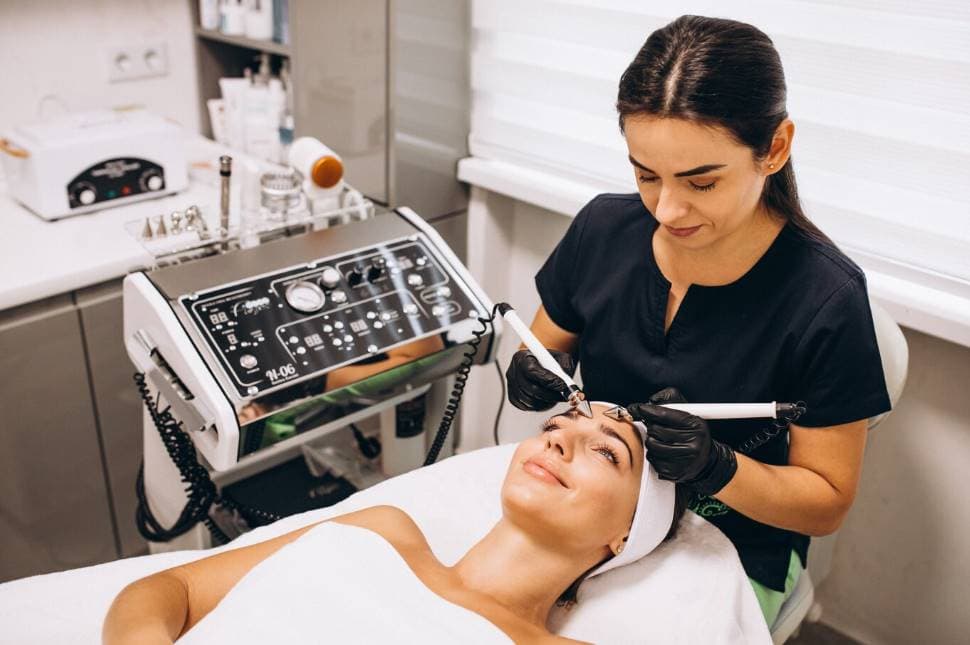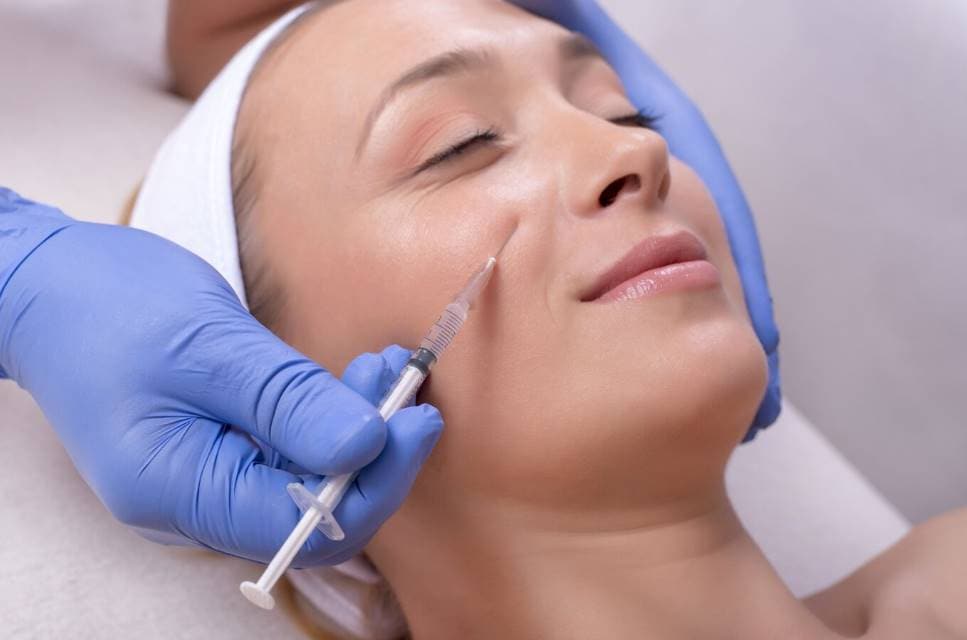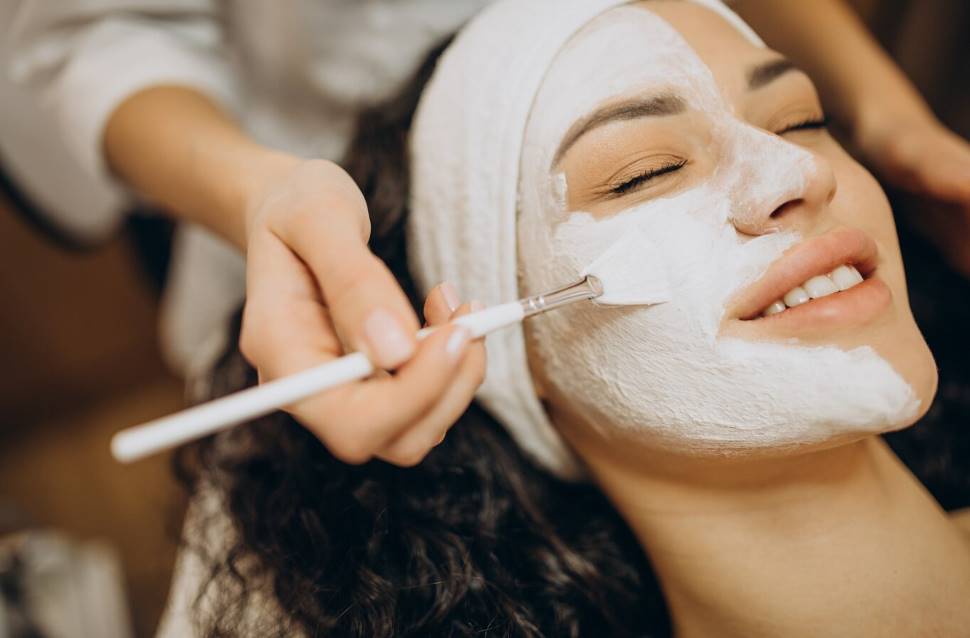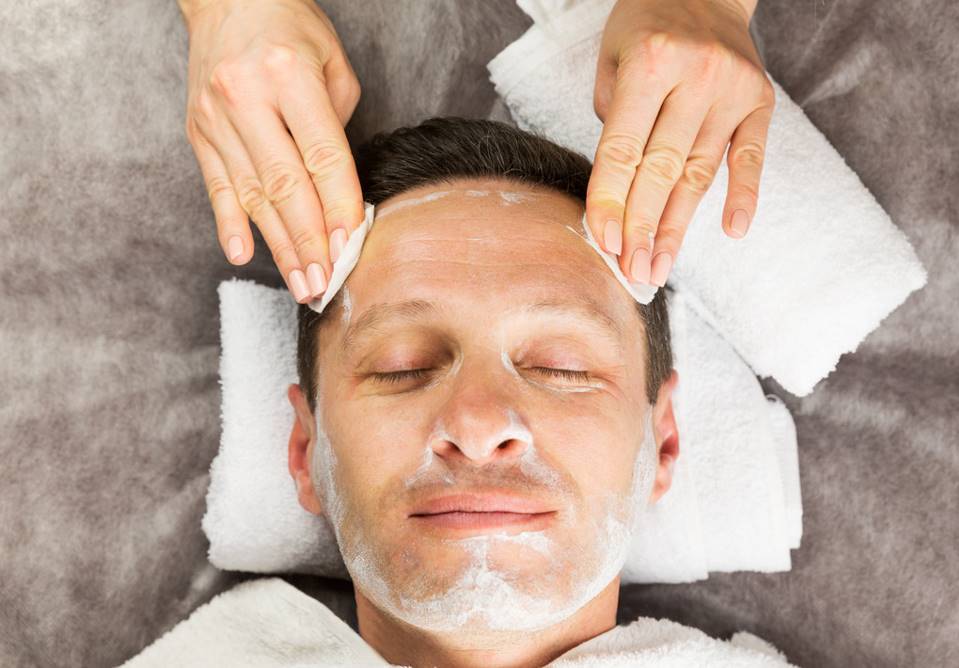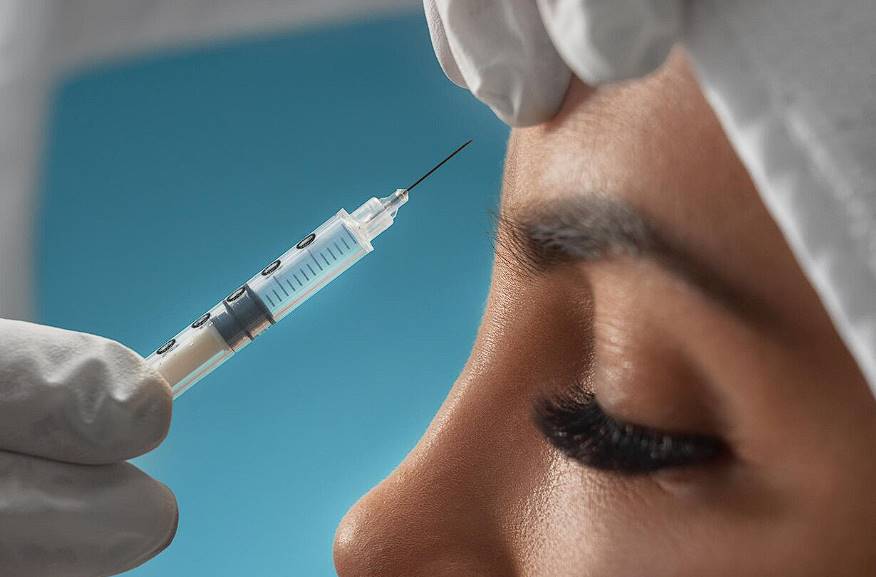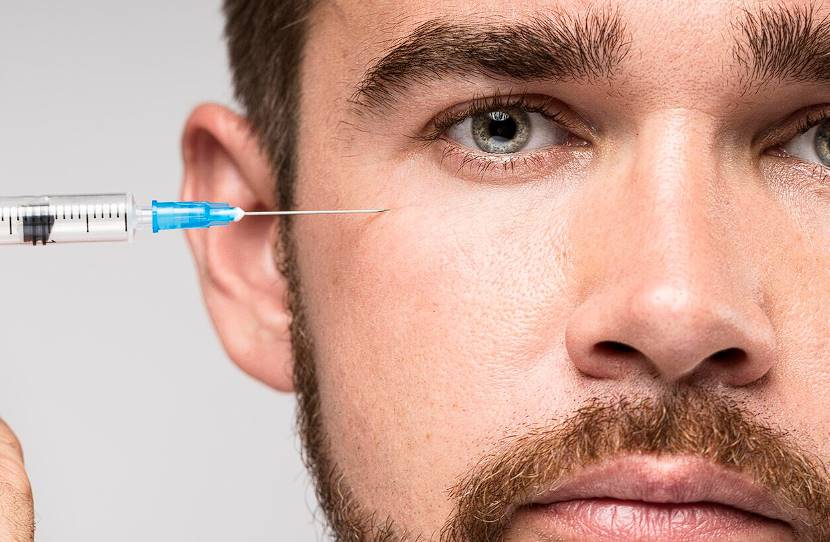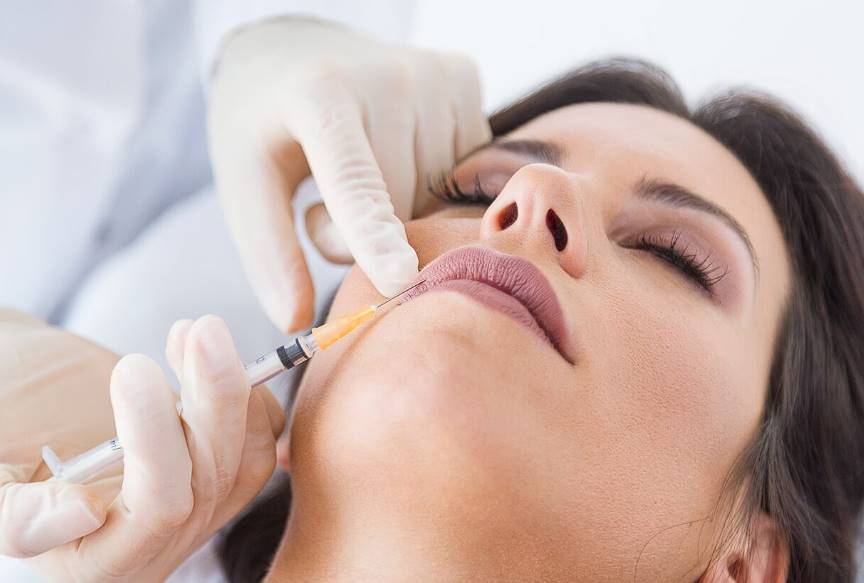Lip fillers take the aesthetic world by storm because they make lips fuller and more defined quickly and without surgery. Full, juicy lips are now a highly sought-after beauty trait. With lip fillers, you can get this look without having surgery.
This guide will tell you everything you wish to know regarding lip fillers, whether you want to get lip augmentation or are curious about this well-known cosmetic procedure.
Understanding Lip Fillers
Lip fillers, also called "lip injections," are when a substance like hyaluronic acid is put into the lips to make them look fuller. Even though we usually think of them in terms of people who want fuller lips, they are also effective in making lips more even, lifting the outer edges of the mouth, and getting rid of lip wrinkles that worsen with age.
Body fat or surgical implants can also be used as injection materials. Still, hyaluronic acid, found naturally in the body, is the most common filler for lip procedures. The type of filler you choose depends on what you want to achieve with the treatment, whether to even out the size of your lips or give them more volume and shape.
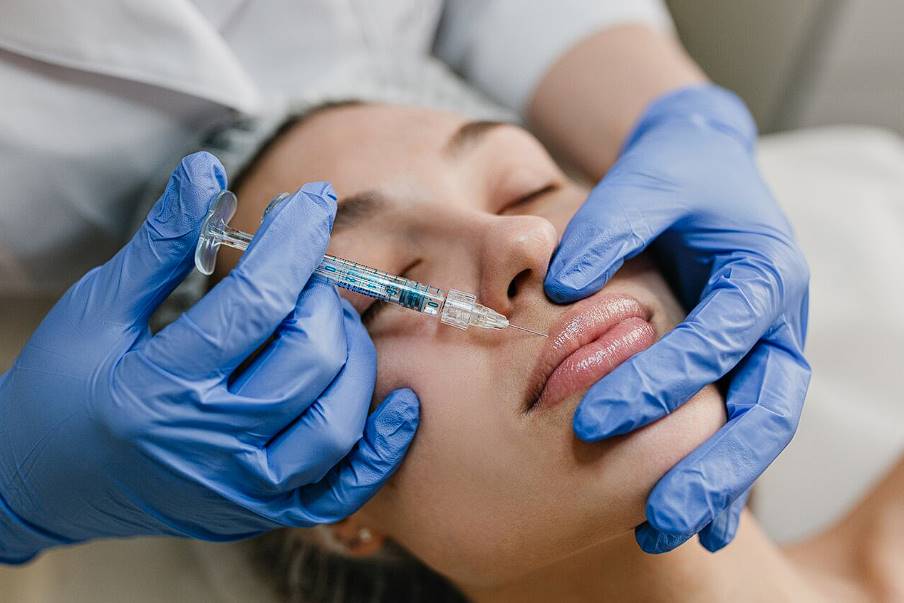
Types of Lip Fillers
If you're considering getting a lip injection but need to know which filler is correct for you, we've compiled a list of a few popular fillers you can utilise to make your lips look fuller and improve your overall look.
Hyaluronic Acid (HA) Fillers
Hyaluronic acid, or HA, fillers are made with hyaluronic acid, a substance the body makes on its own. HA fillers can make the lips fuller and give them a better shape and structure. Restylane and Juvederm are two of the most popular HA fillers for lips.
Juvéderm
This product can be used in two different ways around the lips. Juvéderm makes the lips fuller and brings out the red. Juvéderm may be diluted outside of the instructions if you want to and may be combined with a local anaesthetic to smooth out fine lines.
Juvéderm usually lasts between 6 and 9 months, and it has a local anaesthetic, making it less painful. Juvéderm injections into the lips must be done about once a year for the best results. If you don't want your lips to get too large, add a little Juvéderm at each stage to get the desired results over time.
Restylane
Restylane is a type of fillers made of hyaluronic acid, a substance that are usually injected into a person's cheeks, lips, nasolabial lines, and mouth by a cosmetic surgeon. When injected, this dermal filler may smooth out lines and make the cheeks and lips fuller.
Surgeons can use Different Restylane products on different parts of the face. This involves Restylane Silk, a filler that the FDA has approved for procedures to make the lips bigger and smooth out wrinkles within the mouth.
Restylane Silk has a smaller, smoother gel, so the results are softer and more accurate. Because of this, the filler is a great way to renew and add to the lips.
Surgeons can use a very fine needle to inject Silk onto your lips with the utmost accuracy. Restylane Silk also has lidocaine, a local anaesthetic that reduces pain and makes the procedure as comfortable as possible.
Collagen Fillers
Collagen hasn't been as popular as it used to be, mostly because it needs to be tested on the skin, and some people are allergic to it. It is made of collagen from cows, which can cause allergies. The length of time is unknown. Hyaluronic acids, which come from nature and are found in large amounts in our bodies, have been popular for about 20 years.
What Happens During Your Filler Appointment
During a Pure MD enquiry, the doctor will ask you many questions about your health, like what medications you take, and discuss your aesthetic goals.
Before treatment, your provider will wash your skin and use a topical anaesthetic to numb the injection area. This will make the injection less painful and uncomfortable. The filler is then put in just under the skin.
Whatever the filler used, the results can be seen immediately. After treatment, you can return to normal life but may be told to avoid physical activity and other vigorous pursuits for a few days.
What To Do Before Lip Fillers And Injections
We will give you these tips on how to get ready for fillers so that you don't get as much swelling and bruising at the injection site:
A Week Ahead of Lip Injections
- You should avoid supplements like primrose oil, garlic cloves, Gingko, St. John's Wort, biloba, ginseng, and Vitamin E. Also, avoid over-the-counter medicines that thin the blood is best, such as aspirin, Ibuprofen, Motrin, and Aleve.
Two Days Before Injections
- Do begin taking arnica for two days before the surgery. (This isn't necessary, but it can keep bruises from worsening.)
- Don't wax, bleach, pluck, or use hair-removing lotion on the area you want to treat.
- Avoid Retinoids, Retinol, Tretinoin, Glycolic Acid, and other "anti-aging" products on your skin.
Twenty-Four Hours Before Injections
- Avoid drinking alcohol 24 hours before the test.
General Recommendations
- You shouldn't use facial fillers if you're pregnant or nursing, allergic to ingredients, or have a neurological disorder. Please let them know if you have concerns about this before your treatment.
- If you have had cold sores on your face before, there is a chance that the needle pricks could cause more cold sores to appear. Please tell the person helping your doctor if you're infection-prone.
What to Expect During Your Appointment
After the consultation, where we find out what the patient wants, the lips are numbed and then cleaned with alcohol. The filler is injected into areas that need more volume with a tiny needle, and the area is massaged delicately to keep lumps from forming.
Each patient will need a different amount of filler, depending on their body and desired look. Most of the time, the whole thing takes around thirty minutes to complete. A millilitre of fillers is also referred to as a "cc."
What Are Common Short-Term Lip Filler Side Effects?
Expect some swelling, bruising, a little pain, and even a little bleeding. So there's no need to worry. However, these side effects typically go away within 48 hours after the first treatment.
You must see your doctor if these symptoms last over a few days. You should also call your skin clinic immediately if your lips are uneven, have bumps, or look different from the rest of your face.
Treatment Preparation to Avoid Bruising
If you prepare well, you will have less bruising after getting dermal filler injections:
- Stop taking prescription drugs or vitamin supplements that stop blood from clotting before starting treatment. Talk to your MD provider about how long you should stop taking these drugs before the surgery.
- Don't drink alcohol for a couple of days before getting dermal fillers.
- Take arnica, a herbal remedy that decreases swelling and helps the body heal, five days before your treatment.
- Eat fresh pineapple for a full week or two before treatment. It has an enzyme called bromelain, which is known to help reduce bruising.
Do Lip Fillers Look Bigger at First?
When you first get lip fillers, you'll have swelling that will make your lips appear bigger than they will when they heal. When you get lip fillers, the swelling can worsen the next morning. Your top lip might not have any shape and stay over your bottom lips.
The good news is that the swelling goes down quickly. Following the pre-care and after-care instructions for lip fillers is important to keep swelling down. You should talk to your doctor if you're concerned with swelling after getting lip fillers.
What You Must Understand About Bruising
Most people who get dermal filler injections get black and blue bruises. Studies indicate that anywhere from 19 per cent to 68 per cent of people who get dermal fillers get bruises. These bruises can last anywhere from a few days to a week.
Patients who are more likely to get bruises are:
- Hungry people
- People who consume alcohol in the 24 hours before treatment
- People who don't have enough vitamin C or iron
- Patients who are older and have thin, fragile skin
What Happens to Lips That Have Had Filler for Years?
Repeatedly getting filler injections to make your lips bigger over the years may stretch the tissue in your lips. This is due to the lip filler works by making the skin bigger.
When the fillers wear out, your lips can look flat and saggy. This is easy to avoid, though. Just limit when you get fillers for your lips. Ensure you go to a cosmetic hospital with your best interests at heart. A reputable clinic won't give you lip filler if putting more could cause your lips to stretch.
Who Could Benefit From Lip Filler?
It could be that you can't wait to show that special someone how much better your lips look. Still, you can smile or lightly touch your cheek with your lips, but you shouldn't kiss rudely for at least a few days after obtaining lip fillers. Kissing could also be painful because the lips might get swollen or sore.
What About Oral Sex?
You shouldn't have oral sex for at least two days after getting lip fillers because it may cause more stress on your lips and slow the healing process. And because the treatment leaves small wounds, the chance of getting an STD could be greater than usual.
So, we suggest you wait. But after a couple of days, getting used to your fresh lips may help you feel better about yourself.
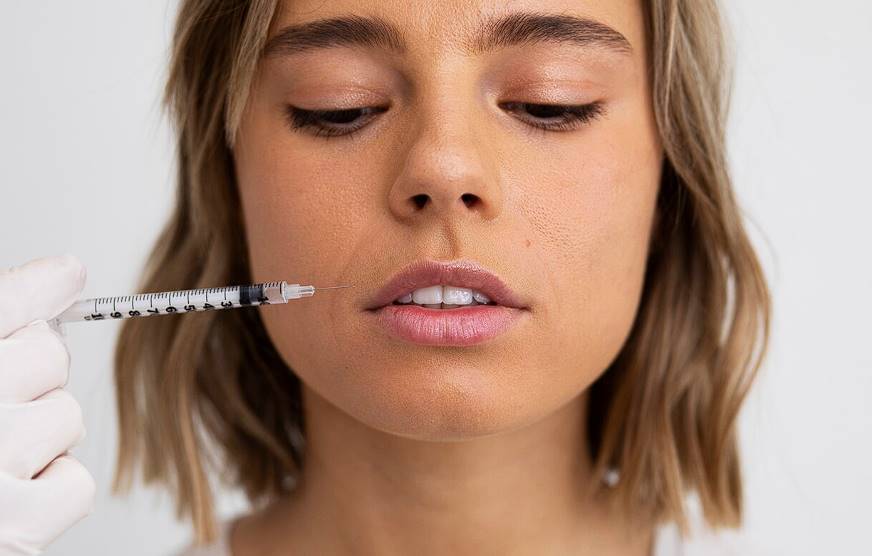
Benefits of Lip Filler
Lip fillers are among the most popular beauty treatments around the globe because they are helpful in many ways.
Some of the advantages of lip filler injections are:
- Changes the size, shape, asymmetry, and definition of the lips.
- Treatment that is quick, safe, and works
- Can fix a smile that is uneven or full of gums
- The treatment is very flexible and accurate.
- Treats lines and wrinkles around your lips, which are signs of ageing.
- Long-lasting effects that can be changed
Who Could Benefit From Lip Filler?
Always keep in mind that no one "needs" lip filler. The treatment is a cosmetic procedure that you can choose to have done. You might be intrigued by lip filler if you want to change the shape of your lips or give your lips more volume. Patients who have lost shape or volume due to aging are good candidates.
On the other hand, if you have certain health problems, you might not be able to get lip filler. During your consultation, your dermatologist or plastic doctor will be able to evaluate you and give you a clear answer. However, autoimmune disorders, diabetes, or taking medicines can make the healing process harder or cause your system to avoid the filler entirely.
Conclusion
Lip fillers are a popular cosmetic procedure that can make lips fuller and more defined without surgery. They are made with substances like hyaluronic acid, which is naturally found in the body. Some popular types of lip fillers include HA (Hyaluronic Acid) fillers, Juvéderm, Restylane, and collagen fillers.
HA fillers are made with hyaluronic acid, a substance the body makes on its own, and can make the lips fuller and give them a better shape and structure. Juvéderm can be used in two ways around the lips, making the lips fuller and bringing out red.
Restylane is a type of filler made of hyaluronic acid, usually injected into the cheeks, lips, nasolabial lines, and mouth by a cosmetic surgeon. Restylane Silk is FDA-approved for procedures to make the lips bigger and smooth out wrinkles within the mouth.
During a Pure MD enquiry, the doctor will ask about your health, medications, and aesthetic goals. Before treatment, the filler is put in just under the skin, and results can be seen immediately. To prepare for lip fillers, avoid supplements, over-the-counter medicines, arnica two days before injections, waxing, bleaching, plucking, or using hair-removing lotion on the area you want to treat.
Facial fillers should not be used if you are pregnant or nursing, allergic to ingredients, have a neurological disorder, or have had cold sores on your face.
Lip fillers are a popular beauty treatment that can change the size, shape, asymmetry, and definition of the lips. They are quick, safe, and effective in treating uneven or full-of-gum smiles, as well as lines and wrinkles around the lips. Patients may benefit from lip filler injections if they want to change the shape of their lips or give them more volume.
However, certain health problems, such as autoimmune disorders, diabetes, or taking medicines, may make the healing process harder or cause the system to avoid the filler entirely.
Short-term side effects include swelling, bruising, pain, and bleeding, which typically go away within 48 hours after the first treatment. To avoid bruising, patients should stop taking prescription drugs or vitamin supplements, avoid alcohol for a couple of days, take arnica, and consume fresh pineapple for a week or two.
Bruising is common in patients who receive dermal filler injections, with 19% to 68% experiencing bruises. People who are more likely to get bruises include those who are hungry, consume alcohol 24 hours before treatment, lack vitamin C or iron, and have thin, fragile skin.
Repeated lip filler injections can cause flat and saggy lips, but it is important to limit the amount of fillers and consult a reputable clinic. Lip fillers are beneficial for those who want to show someone how much better their lips look, but it is important to remember that no one "needs" lip filler.
Content Summary
- Lip fillers have revolutionized the beauty industry by offering quick and surgery-free routes to fuller, more defined lips.
- The allure of full, plump lips has made lip fillers a highly sought-after beauty treatment.
- This comprehensive guide covers everything you need to know about lip fillers, whether you're considering lip augmentation or simply curious.
- Lip fillers, also known as lip injections, involve injecting substances like hyaluronic acid to enhance lip fullness and shape.
- These fillers can even out lips, lift the outer corners of the mouth, and reduce age-related lip wrinkles.
- While other materials like body fat or surgical implants can be used, hyaluronic acid is the most common choice for lip enhancement.
- The choice of filler depends on your specific goals, whether it's evening out lip size or adding volume and definition.
- Hyaluronic Acid (HA) fillers, such as Restylane and Juvederm, are popular choices for achieving fuller, shapely lips.
- Juvéderm can enhance lip fullness and define the lip's red area, often combined with a local anaesthetic for comfort.
- Juvéderm results typically last between 6 to 9 months and can be adjusted gradually for desired results.
- Restylane, another hyaluronic acid filler, can smooth lines and plump lips, offering various products for different facial areas.
- Restylane Silk, an FDA-approved filler for lip enhancement, provides soft and precise results.
- Restylane Silk contains lidocaine, a local anaesthetic, ensuring a comfortable procedure.
- Collagen fillers, while less popular due to potential allergies, are an option but have been largely surpassed by hyaluronic acids.
- Preparing for your filler appointment involves discussing your health, medications, and aesthetic goals with the doctor.
- A topical anaesthetic is applied before treatment to reduce discomfort during the injection process.
- Results are immediately visible, allowing you to return to normal activities shortly after the procedure.
- To minimize swelling and bruising, it's advisable to avoid specific supplements and blood-thinning medications in the week leading up to the injections.
- Arnica can be taken before the surgery to prevent worsening of bruises.
- Refrain from waxing, bleaching, or using hair-removing products on the treatment area.
- Avoid using products containing retinoids, retinol, tretinoin, or glycolic acid on your skin.
- Stay alcohol-free 24 hours before the procedure.
- Facial fillers are not recommended during pregnancy, nursing, for those allergic to ingredients, or individuals with neurological disorders.
- Inform your doctor if you are prone to cold sores, as the procedure may trigger outbreaks.
- During the appointment, the doctor numbs and cleans the lips before using a tiny needle to inject the filler.
- Each patient's filler amount varies based on body and desired outcome, typically taking about 30 minutes.
- Common short-term side effects include swelling, bruising, pain, and minor bleeding, usually resolving within 48 hours.
- Consult your doctor if these side effects persist beyond a few days or if your lips appear uneven or bumpy.
- Preparing to minimize bruising includes discontinuing blood-thinning medications, avoiding alcohol, taking arnica, and consuming fresh pineapple.
- Initial swelling can make lips appear larger than the final result; follow pre-care and after-care instructions to manage it.
- Bruises are common after dermal filler injections, with varying durations and likelihood based on factors like diet and skin condition.
- People at higher risk for bruises include those who are malnourished, consume alcohol before treatment, lack vitamin C or iron, and have thin skin.
- Over time, repeated filler injections can stretch lip tissue, leading to a flat and saggy appearance.
- Choosing a reputable clinic is crucial to avoid overfilling that may harm your lips.
- After lip fillers, you should refrain from aggressive kissing for a few days due to potential swelling or soreness.
- Oral sex should be avoided for at least two days to prevent added stress on your lips and to facilitate healing.
- Lip fillers offer various benefits, including reshaping, symmetry correction, quick and safe treatment, and wrinkle reduction.
- They are flexible and precise, providing long-lasting effects that can be adjusted.
- Lip filler is a cosmetic procedure, not a necessity, suitable for those seeking lip shape or volume changes.
- Health conditions like autoimmune disorders, diabetes, or certain medications can affect your eligibility for lip filler.
- Consulting with a dermatologist or plastic surgeon will clarify your suitability for the procedure.
- Patients with autoimmune disorders or those on specific medications may face challenges during the healing process.
- Lip fillers have gained worldwide popularity as a versatile and effective cosmetic treatment.
- The procedure can enhance lip size, shape, and definition, addressing asymmetry and signs of aging.
- Lip filler results are noticeable immediately after treatment.
- Topical anaesthetics are used to minimize discomfort during the injection process.
- Swelling and bruising are common short-term side effects, typically resolving within a few days.
- Adequate preparation can reduce the risk of bruising, including avoiding specific medications and alcohol.
- Consultation with a healthcare professional is essential to assess eligibility and address potential health concerns.
- Lip filler is a choice rather than a necessity, allowing individuals to tailor their appearance to their preferences.
Frequently Asked Questions
Is 0.5 ml of lip filler noticeable? The answer is yes; 0.5 ml of lip filler is generally noticeable, but the extent of the effect can vary depending on individual factors. Lip fillers are a type of dermal filler designed to give you fuller lips and a more voluminous look.
Eat foods that are effortless to eat and chew and keep your lips clean. Take in a lot of water. Avoid sipping from a straw, because squeezing your lips together can hurt and swell them. Other than that, you can eat anything after getting lip fillers.
It is an excellent way to replenish volume and give your pout an extra kissable look while avoiding duck lips. Depending on your natural lip shape, 1ml of lip filler will leave you with naturally plump-looking lips rather than an exaggerated or dramatic finish.
Yes, you can brush your mouth after getting lip fillers, but you should avoid touching or putting too much pressure on the area being treated for the first 24 to 48 hours.
The best way to choose a lip shape is to consider your overall facial features and desired outcome. It's also important to consult with an experienced practitioner who can evaluate your individual needs and goals, helping you select the ideal lip filler option for you.
